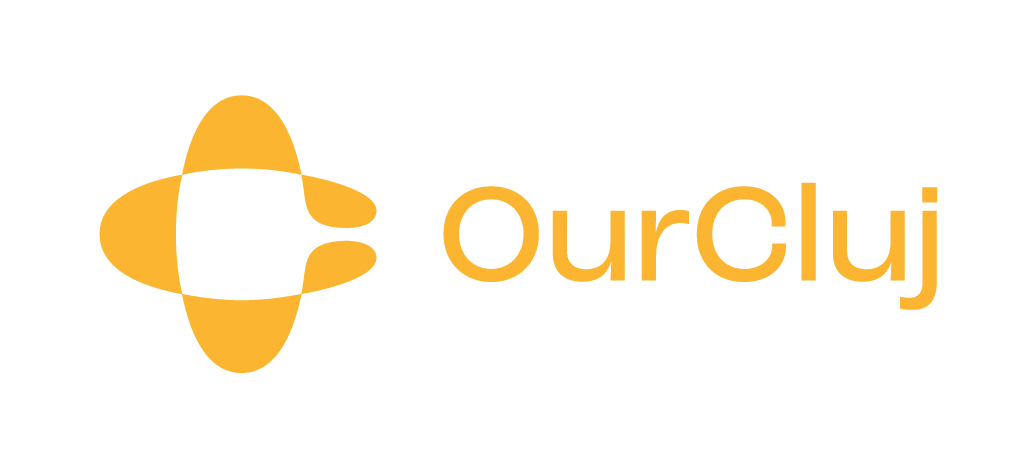A new workbook
Imagining Futures, Sharing Power
workbook – a manual for guidance, reflection and learning
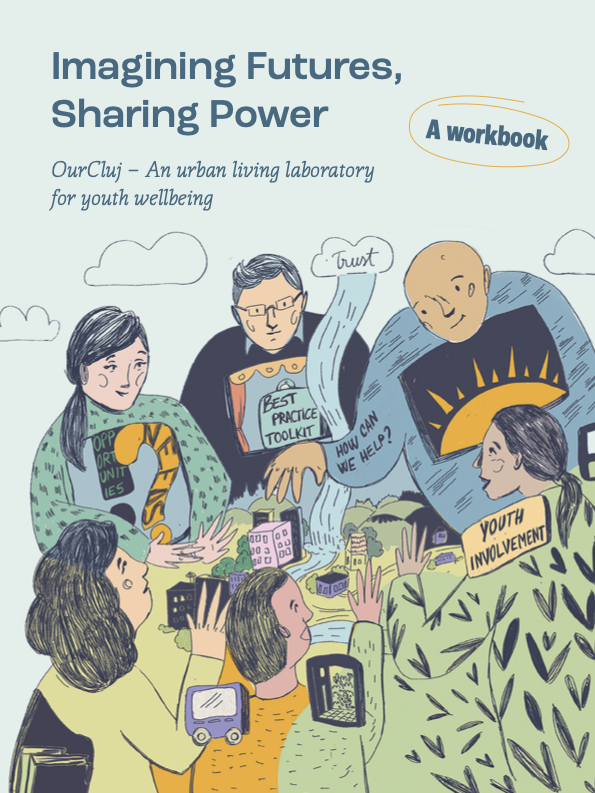
#OurCity interview series
Imagining Futures, Sharing Power
Co-creating cities for youth wellbeing
A new interdisciplinary study
Activating Values in Urban Transitions
A novel approach to urban innovation in Romania (May 2022)
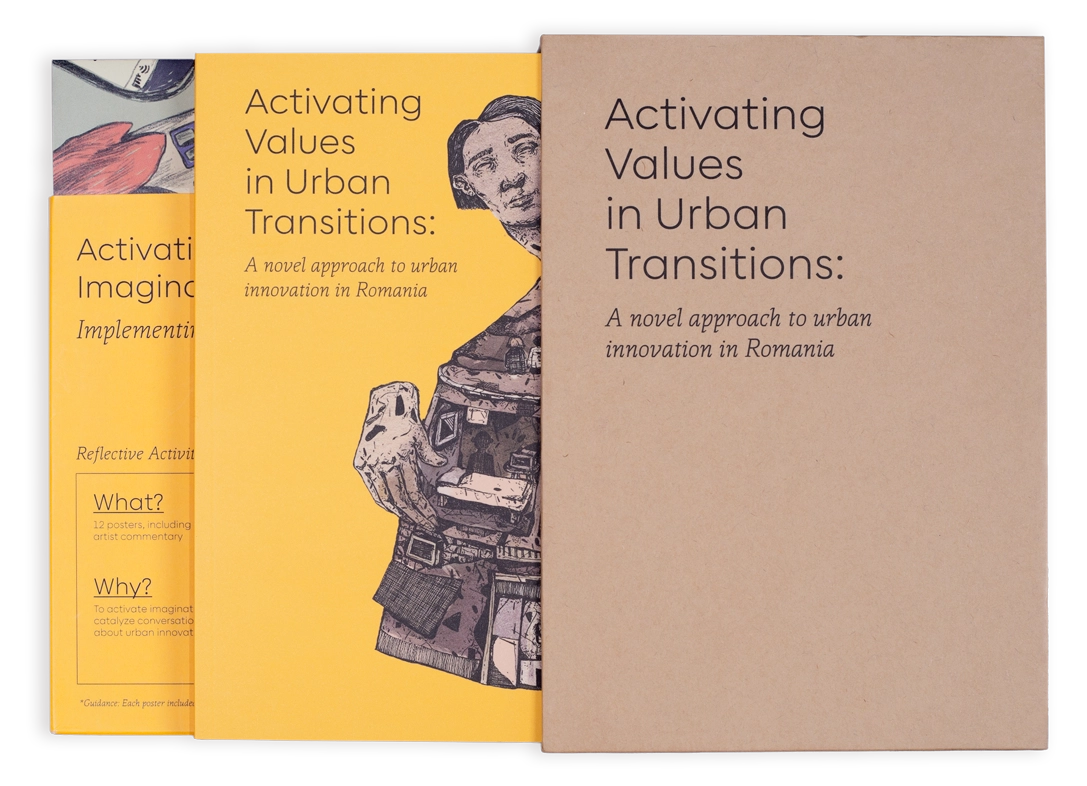
All urban transitions, whether labeled innovative or smart, are guided by a set of stated or unstated values.
This new study is an in depth exploration into the individual motivations and collective goals of people actively seeking to change the script of what social innovation looks like in Romania.
Our research demonstrates that urban transitions are not only a matter of who gets funding and how arrangements are governed, but also, and perhaps most importantly, how narratives change. What stories are getting told about the future? What stories need to be told about the past? And how do people model democratic transitions through their everyday actions?
About OurCluj
OurCluj is a novel approach to urban innovation that activates values of care and trust in urban transitions. We call it a Values-Based Urban Living Laboratory (VBULL).
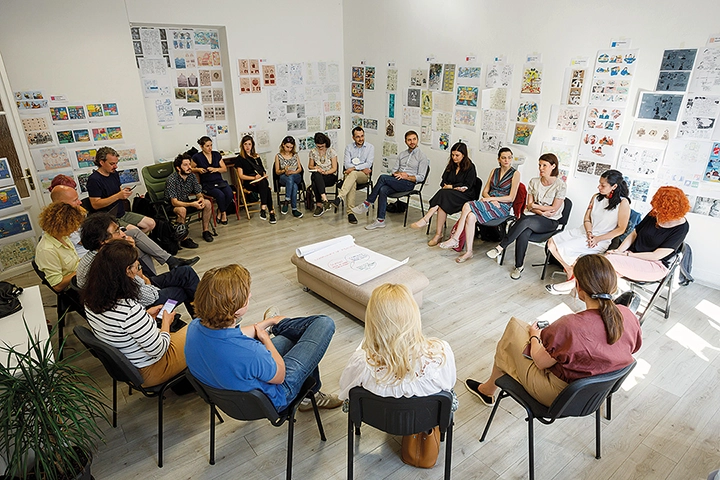
As cities grow in size and importance, negotiating just urban transitions is critical for our shared future. In 2019, a collective of urban innovators in Cluj-Napoca, Romania began asking what if a different set of values were guiding urban transitions. What if goals of well-being were prioritized over economic growth? What if care were prioritized over efficiency? What if the cultivation of trust were more important than expediency?
OurCluj design and research experiment was created with the goal of exploring these critical questions. It is a geographically localized innovation cluster of projects that takes the shape of a multi-sectoral, multi-disciplinary “living laboratory”. It is optimized for the enhanced well-being of the city’s young residents, who are considered to hold the key to a better future. Living laboratories are usually focused on specific innovations like transport, energy systems or tourism – but in Cluj we center on the values of trust and care in project work. We find that prioritizing these values is a requirement for creating policies and programs that are optimized for outcomes such as enhanced well-being.
About Cluj-Napoca
Cluj-Napoca is the historic capital of Transylvania in central Romania. It lies in the Someșul Mic River valley, surrounded by forests and grasslands between the Apuseni Mountains and the Transylvanian Plain. It is also known by its German name, Klausenburg, and its Hungarian name, Kolozsvár. It has been referred to as a stage for multicultural exchange and common ground and the site of “nationalist politics and everyday ethnicity.”
The city stands on the site of an ancient Dacian settlement, Napoca, and was one of important cities in the Eastern Roman Empire. At the end of the ninth century, the ancestors of today’s Hungarians settled in Transylvania and were followed by the Saxons’ occupation. In 1316, Cluj was granted the status of a city, Civitas Kulusvar. After the constitution of the autonomous principality of Transylvania in the sixteenth century, Cluj became its capital. In 1920, Cluj along with the rest of Transylvania was incorporated into Romania.
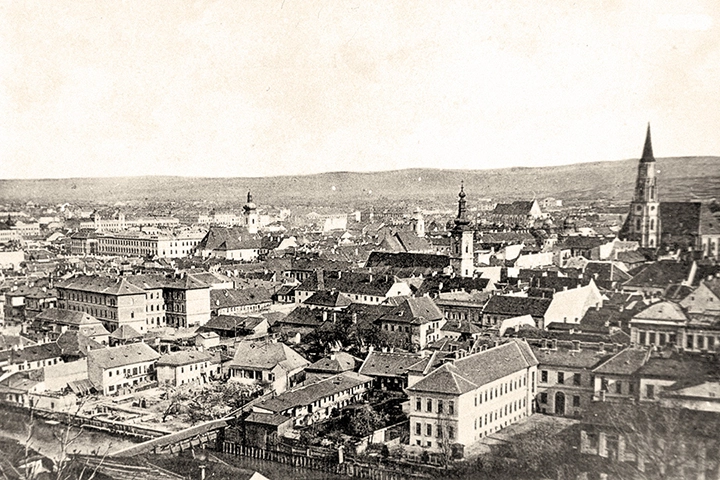
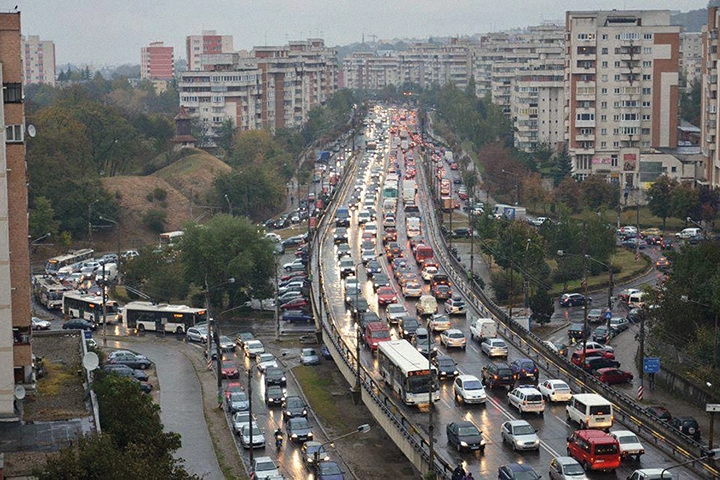
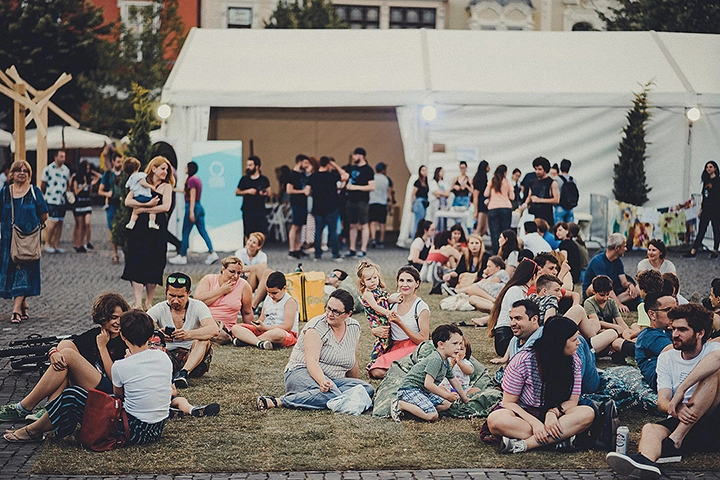
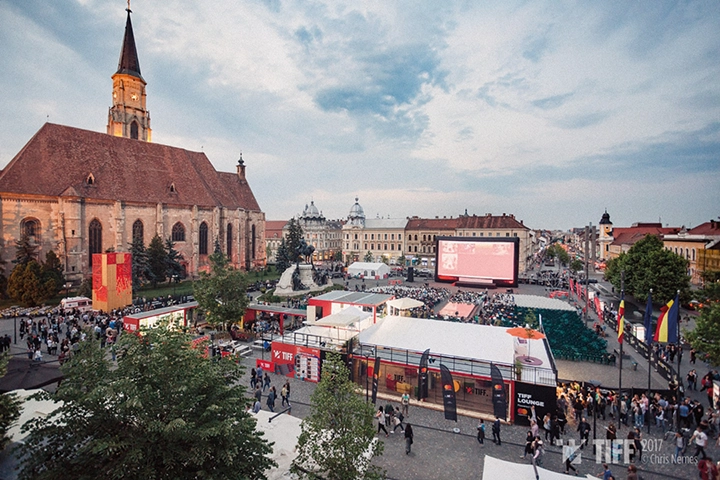
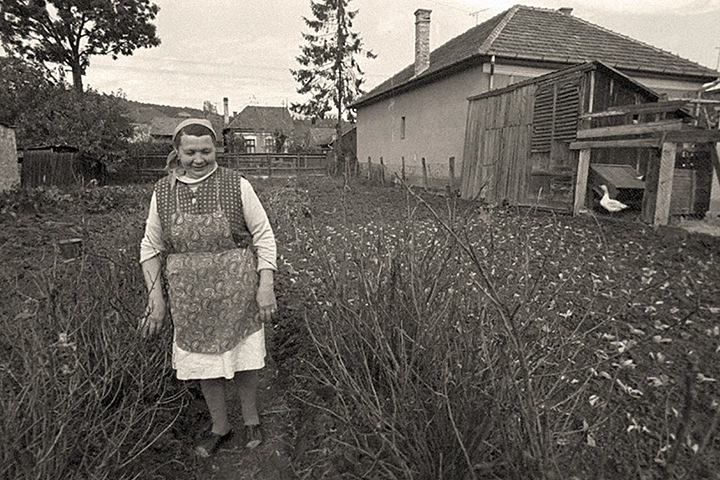
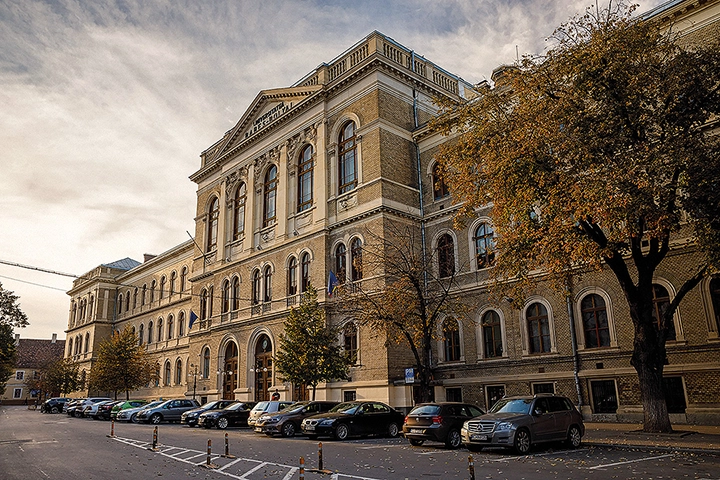
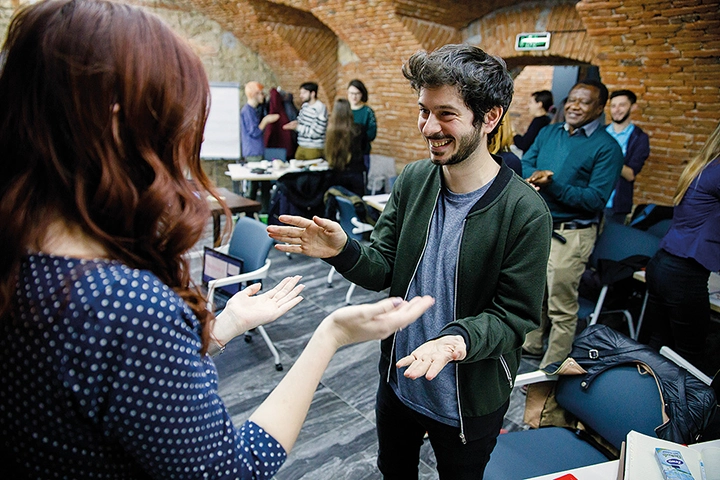
OurCluj Projects
OurCluj is a multi-sectoral arrangement of projects. It aims to activate values of care and trust for outcomes such as youth well-being. Prioritizing these values is a requirement for creating policies and programs that are optimized for enhanced well-being. We call this unique arrangement a Values-Based Urban Living Laboratory (VBULL).
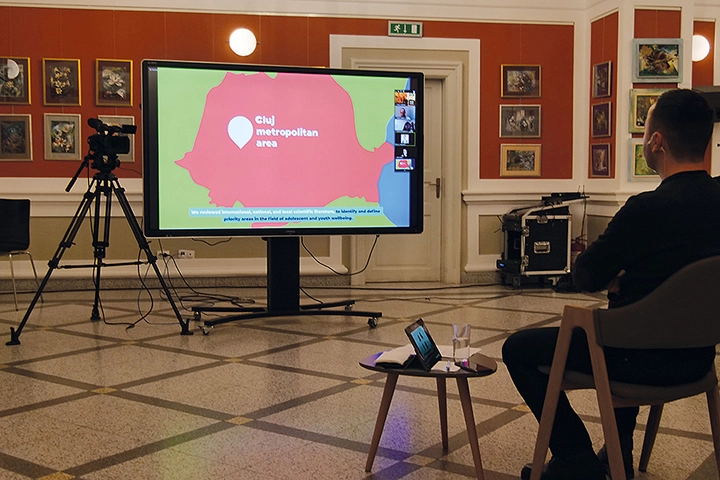
Launch of the LEAP interdisciplinary study in collaboration with the city hall and its Cluj Civic Imagination and Innovation Centre (CIIC).
Source:
Cluj-Napoca City Archive,
January 2021

Presentation of MagicHelp implementation project to OurCluj participants.
Photo by:
Roland Váczi, September 2019
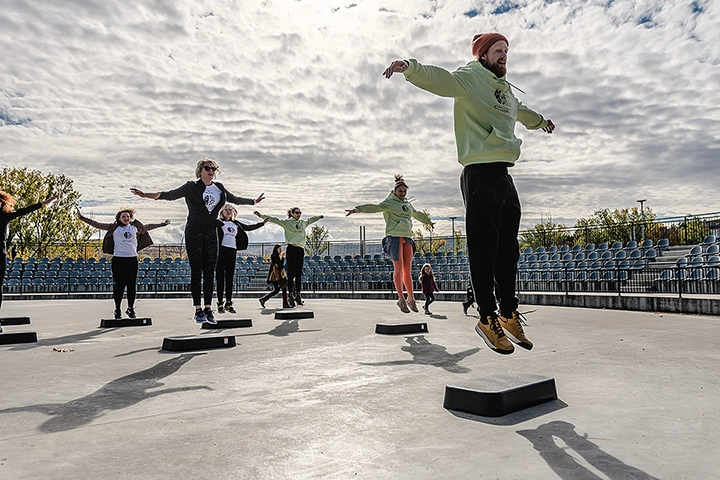
Mapping of Com’ON ecosystems of small scale social innovation projects, funded through participatory budgeting since 2015; featured FitCreativ in the Gheorgheni Sports Base, part of Com’ON 2021.
Source:
PONT Group Archive
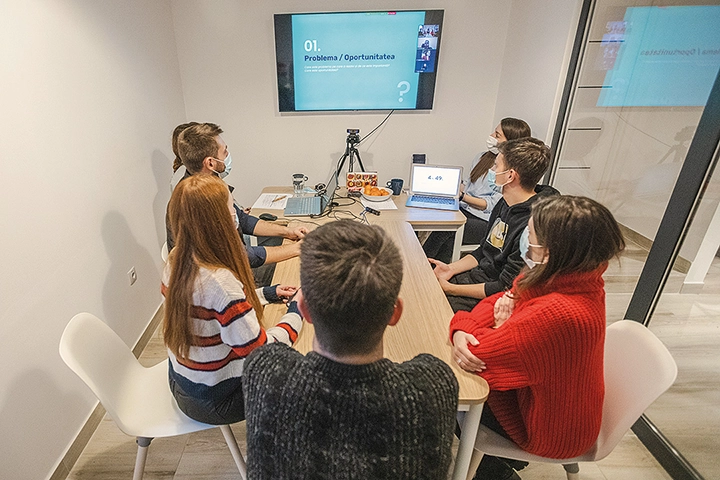
UniDex team, one of 140 innovation projects by youth participants, presenting to the jury for FIX Cluj funding and training.
Source:
PONT Group Archive, December 2021
OurCluj
Development Phases
Introduction (testing)
- Map and analyze challenges and opportunities for youth well-being.
- Identify priority areas for systemic transformation (e.g. education).
- Incubate co-design projects around priority areas.
Development
- Develop and evaluate incubation projects.
- Co-design a vision for youth-centered city, with high-leverage systemic interventions for youth well-being (e.g. education).
- Develop a “theory of change” for OurCluj as a catalyst for this vision.
Transformation
- Enable stakeholders to co-design and implement collaborative, mutually reinforcing interventions.
- Cultivate communities of practice and shared learning.
- Monitor and evaluate results, adapt as needed.
Transition (exiting)
- Transition to a local backbone organization or a novel partnership arrangement.
- Establish collaborative governance arrangements.
- Monitor and evaluate results, adapt as needed.
Practicing
Urban Transitions
We describe the work of the Values-Based Urban Living Laboratory (VBULL) in three parts.
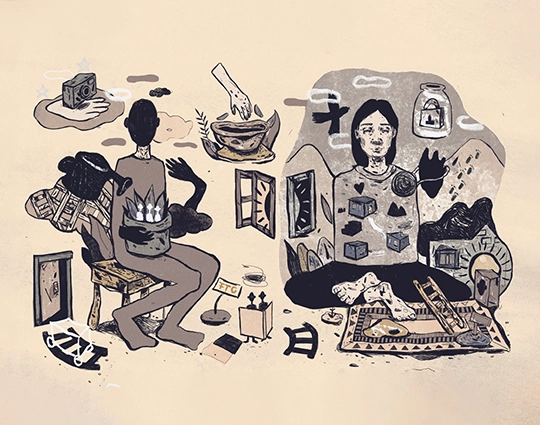
Imagining Futures
Openly articulating possible civic futures
- Imagination as Public Resource
- Towards Multi-Sectoral Collaboration
- Local Decision-Making
- Centering Youth Perspectives
- Understanding Well-Being

Remembering the past
Actively confronting histories and spaces that present barriers to achieving desired futures
- Culture of Mistrust
- Individualism vs. Collectivism
For any governing arrangement, it is important to understand the cul- tural context in which it is situated. Especially when values and imagi- nation are centered, as is the case with OurCluj, the place of history and memory is essential. History and memory provide different approaches to conceptualizing the past. We examine how history and memory inform practices of urban innovation in Cluj and the challenges of centering democratization in future visions. We heard from people that barriers to achieving a shared future vision include the strong presence of an unwanted past.

Sharing power
Actively exploring novel practices that promote power sharing
- Institutional Structures
- Collaboration
All democratic transitions require power sharing. The incorporation of democratic principles into everyday practices takes time. Centering youth well-being as a desired outcome in Cluj, for example, requires that outcomes like individual wealth building and political authority get deprioritized. To achieve institutional trans- formation, the VBULL must also be concerned with sharing power. This means cultivating new paths – new ways of wielding and distributing power. Creation of such new paths require understand ing systemic inequities and taking actions to address them.
Design Recommendations
Imagining Futures
When initiatives are launched or projects gain momentum, meetings are held and people share their enthusiasm. Too often, this enthusiasm is oriented towards a specific project or initiative. The focus tends to be put on the “what,” but not the “why” and “what for.” Instead, spaces must be created for people across generations to share what future they imagine together if the project is successful. Otherwise, it is easy to default to standardized values of profit making and efficiency. For this reason, the municipality in Cluj created the Cluj Civic Imagination and Innovation Centre (CIIC), which is both a physical and digital space for the civic imagination.
Urban social ecosystems should be diverse and complex. It is imperative that arrangements are labeled and mapped as an ongoing process. Actors need to understand the relationship and interdependence between stakeholders (public, private, civic); across generations; across interrelated domains (social, economic, environmental); through policies and their implementation; across time (past, present, and future); and over scales (local, national, global). The visualization of such relationships is essential for participants to imagine what is possible together.
We invite you to reflect on the artwork included here to explore the role of values in urban innovation. Beginning with the three discursive practices presented in the study – imagining futures, remembering the past, and sharing power – take a moment to consider the kind of values present in your own community’s efforts.
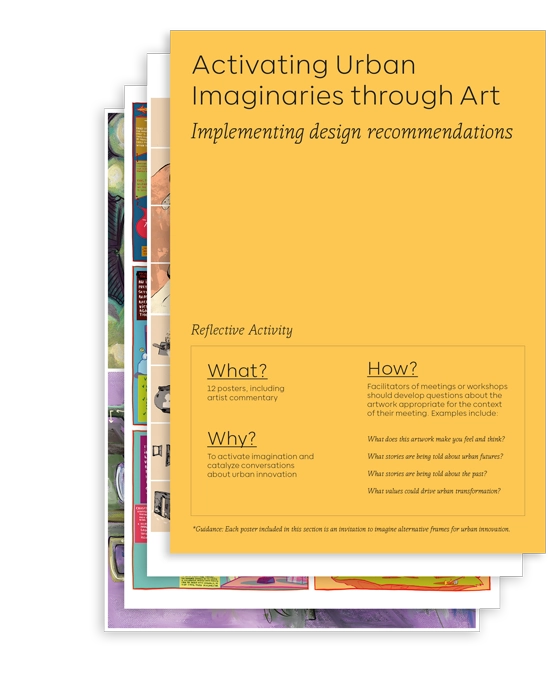
Remembering the past
It is necessary to create space for people to honestly reflect on the harms and challenges of the past and present as they imagine the future. These spaces should be separate from the future-oriented ones, such that they do not get overshadowed by the optimism that those spaces encourage. Only by acknowledging the pain of others is it possible for urban transitions to effectively activate values of trust and care.
OurCluj has started to experiment with environmental maps through the Cluj Atlas project. Some possible approaches include:
- Interactive walking tours. One possibility is to organize a walking session through the city, to invite people to take pictures of the places about which they have a personal story. Then ask people to share their pictures and experiences.
- Cognitive maps as subjective representations of an environment. It is often useful to ask people to map their “desire lines” through a city. How do they commute? Where do they wander? These maps can be collected and shared with the group.
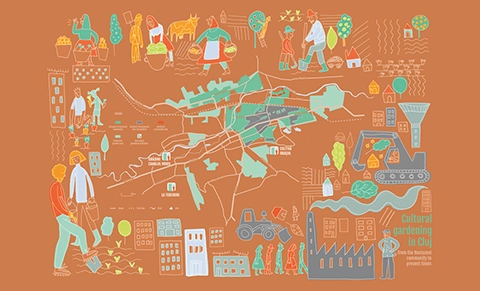
An example of a cultural map, showing the Hoștezeni community and emerging urban gardening initiatives in Cluj-Napoca.
Sharing power
There should be a person or organization that sits outside of established institutions that can broker trust and build relationships between people and across sectors and generations. While most ULLs are organized by a municipality, it is not productive for a VBULL to do so. If the goal of the arrangement is to build trust where it is lacking, the municipality needs to be a collaborator but should not be the leader. Only existing NGOs that are seen as neutral (not too heavily affiliated with a particular neighborhood or issue) can be a viable option for leadership.
Institutions should be explicit about how funding decisions are made and set criteria and document progress in achieving them. It is important for philanthropy and designated intermediaries to be in conversation with the actors involved in the VBULL and not make decisions unilaterally.
A good local example of such approach is the recent establishment of Education Cluster C-EDU in Cluj, with potential to collectively improve the education system for the needs of the twenty-first century.
It is not sufficient to support good ideas or projects. Rather, the VBULL must also incentivize good processes. Project leaders should be encouraged to experiment with how decisions get made, how information is shared, how networks are created, how progress is measured, and how participants get acknowledged and supported. For example, the co-design of FIX Cluj (Cluj Innovation and Experiment Fund), one of OurCluj projects launched in 2021, united public and private partners while building local capacity for social innovation.
Too often, innovation environments have zero tolerance for failure. Funding should not be directly tied to anticipated outcomes, such that grantees are afraid to admit shortcomings. Instead, it should be long term and open ended enough to encourage experimentation and reflection in outcomes and process. Arrangements should contemplate spaces to celebrate successes and reflect on failures through a quarterly convening or showcase.
Learning happens through assessment and continuous dialogue. It is important for the VBULL to establish an identity by clearly articulating goals and objectives.
About the Authors
This study was developed by a team of researchers and practitioners with a wealth of experience across different disciplines, generations, and geographies. They have all been active collectively and individually in diverse academic and social contexts and share a passion to understand and contribute to creating new paths towards a more just and democratic society. The research was led by Eric Gordon in collaboration with Barbara Bulc, who leads the design of the OurCluj initiative.
Written by:
Eric Gordon, Barbara Bulc, Tomás Guarna, Tijana Zderic, Bianca Ștefania Băluță, Nadina Pantea
Include portraits and bios.

Eric Gordon
Eric Gordon is a professor of civic media at Emerson College in Boston, USA, and director of the Engagement Lab and Assistant Dean of Civic Partnerships in the School of the Arts. He is also a research affiliate in Comparative Media Studies at MIT.

Barbara Bulc
Barbara Bulc is a social designer and the founder of Global Development and the non-profit collaboratory SDG Colab in Geneva, Switzerland. Her transdisciplinary practice focuses on design and research of alternative collaborative structures for the well-being of people and the planet.
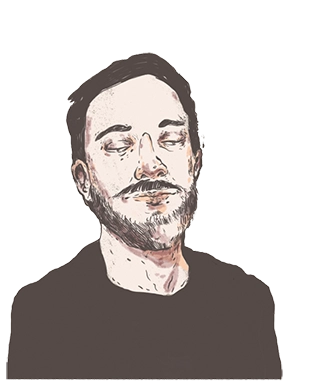
Tomás Guarna
Tomás Guarna is a graduate student at MIT’s program in Comparative Media Studies, where he researches in the Civic Design Initiative. Before this, he obtained his degree in social sciences from Universidad Torcuato Di Tella and worked in the Presidency of Argentina.

Tijana Zderic
Tijana Zderic is a poet and activist from Bosnia and Herzegovina. Currently, she is poetry fellow and Masters of Fine Arts student at Emerson College in Boston. Her poetry manuscript-length thesis is forthcoming in early 2022.

Bianca Ștefania
Băluță
Bianca Ștefania Băluță is a pharmacist with a degree in International Health Policy from The London School of Economics and Political Sciences. She works at the Ministry of Health, contributing to strengthening the healthcare system in Romania.

Nadina Pantea
Nadina Pantea is a PhD candidate in psychology, studying substance use disorders at the Doctoral School in Evidence-Based Assessment and Psychological Interventions, Babeș-Bolyai University in Cluj-Napoca.
Art by:
ArtiViStory Collective
ArtiViStory Collective is an art collective of students at the Faculty of Fine Arts of the University of Art and Design (UAD) in Cluj-Napoca, Romania. The collective originated during the design process of OurCluj VBULL and currently includes 15 artists. All images below are self-portraits by the artists.

Lucian Barbu

Evelina-Maria
Grigorean
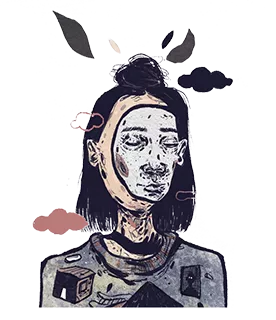
Melinda
Ureczki Lázár

Horațiu Coman

Teodora Predescu
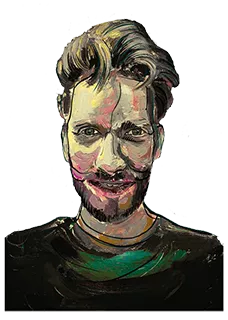
Erdély Bálint
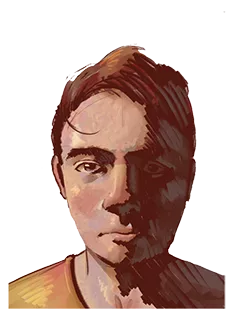
Alexandru Papa
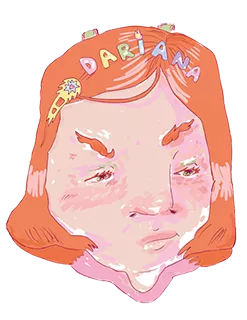
Dariana Ilie
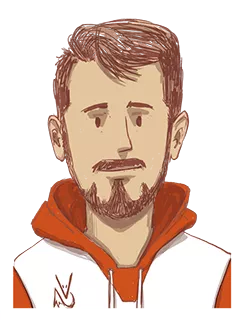
Sebastian Ștefan

Oliviana Fudulache

Diana Florescu

Eunicia Laura Zidaru

Zsófia Bernát
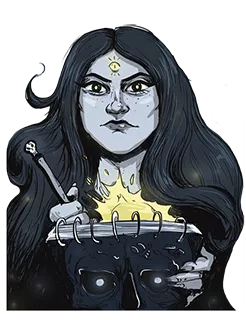
Carla Oros
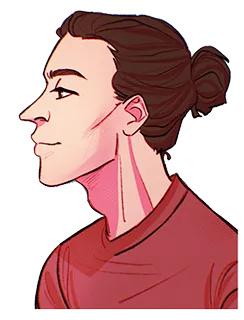
Mihai Udubașa
Curated by:
Alice Iliescu, Daniel Popescu, Anamaria Tomiuc
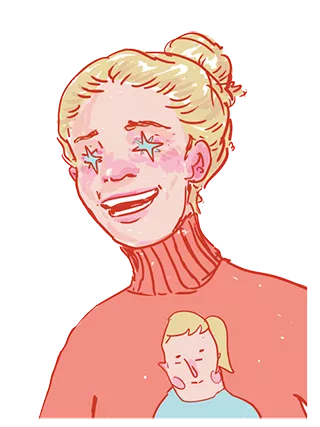
Alice Andreea Iliescu
Alice Andreea Iliescu is associate professor, PhD, within the Graphic Arts Department and the Comics and Cartoons MA Program of the Faculty of Fine Arts of the University of Art and Design in Cluj-Napoca, Romania (UAD). She is coordinating the visual research process within the ArtiViStory Collective.
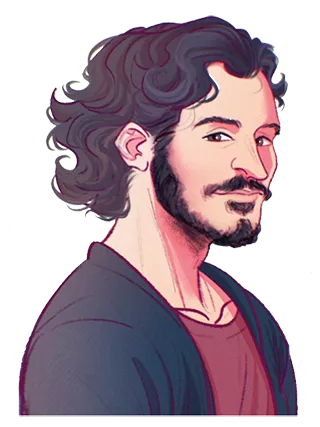
Daniel Popescu
Daniel Popescu is a creator and connector who explores unusual links between art, technology, and education. Besides his project management and teaching roles in the University of Art and Design in Cluj-Napoca, he is involved in the coordination of artistic direction for festivals such as Lights On Romania, in numerous local cultural projects, and community building campaigns.

Anamaria Tomiuc
Anamaria Tomiuc is associate professor PhD within the Department of Theoretical Subjects of the Faculty of Decorative Arts and Design at the University of Art and Design in Cluj-Napoca, Romania, with over 15 years of experience in the sphere of cultural and artistic activities in Cluj-Napoca.
Contributors
The study was informed by almost 30 contributors in OurCluj initiative. They come from public, private, civic, and academic organizations in Cluj-Napoca and from Fondation Botnar, which supports the initiative.Contributors include: Gabriel Bădescu, Emil Boc, Paul Brie, Emilia Botezan, Tünde Buryán, Oana Buzatu, Răzvan Cherecheș, Ovidiu Cîmpean, Cristian Dascălu, András Farkas, Susanna Hausmann, Călin Hințea, Benjamin Kohl, Florina Lendeczki, Paul Emanuel Marc, Ruxandra Mercea, Marius Cătălin Moga, Bianca Muntean, Tudor Ogner, Alexandra Onișor, Zur Oren, Eugen Pănescu, Dumitru Petreuș, Codruţa Simina, Marius Ungureanu, Ștefan Teișanu, Ștefan Voinea, Anamaria Vrabie, and Rarița Zbranca.
Funded by Fondation Botnar
Fondation Botnar is a Swiss foundation focused on improving the health and well-being of young people in growing urban environments around the world. OurCity is an initiative by Fondation Botnar which enables cities around the world to implement coordinated programs that leverage digital technologies and AI to transform them into places where young people’s voices and needs are recognized and prioritized.
